Five Trans Youth Speak Out as SCOTUS Upholds Health Care Ban
On June 18, the Supreme Court of the United States (SCOTUS) upheld Tennessee’s ban on gender-affirming care for minors. The 6-3 ruling is expected to have a broad impact as 24 other states have already enacted similar laws, which bar puberty blockers, hormone therapy (HRT) and gender transition surgeries for trans youth.
As of 2024, 46% of transgender and nonbinary youth seriously considered suicide, and many advocates say this is in part because of their inability to access gender-affirming care.
Uncloseted Media wanted to pass the microphone to the kids and young adults who could be directly affected by SCOTUS’ decision. So we called up Romana, Zavier, Ray, Dylan and Samuel—who are all receiving some form of gender-affirming care—to get their reaction to the decision.
Subscribe for accountability journalism.
Watch the full interview above or read the transcript here:
Spencer: Hi everyone, I am here with five trans kids and young adults from across the United States. Guys, thank you so much for speaking with me and Uncloseted Media today.
All: Thank you for having us.
Spencer: Last week, the Supreme Court ruled 6 to 3 in a landmark case that prohibits health care providers [and] doctors from administering gender-affirming care to minors. That includes puberty blockers and HRT. I want to know, where were you guys when you heard the news and what was your reaction to that?
Samuel: So I’ve been following this case since November. I think the ruling’s ridiculous. I think it’ll kill kids.
Spencer: When you say this ruling is going to kill kids, that is a really bold statement. Why do you say that?
Samuel: It’s a bold statement. The care that enables so many people to live their lives. I think taking that possibility away from people who need it is incredibly cruel and short-sighted.
Romana: I felt disgusted, especially since I think [it’s] just from [the] hate. And I know people who gender-affirming care has saved the life of as teenagers. And I think every kid should be able to have that. And also, this ruling makes me scared that a state might try to ban trans care for adults.
Spencer: It could be a slippery slope.
Romana: Yeah, definitely.
Spencer: When you think about your future as a trans person without the care, what does that look like for you? Why is that so devastating?
Dylan: Because there’s not one.
Samuel: Yeah.
Spencer: Unpack that a little bit more. Why? Like, why do you think there is not one?
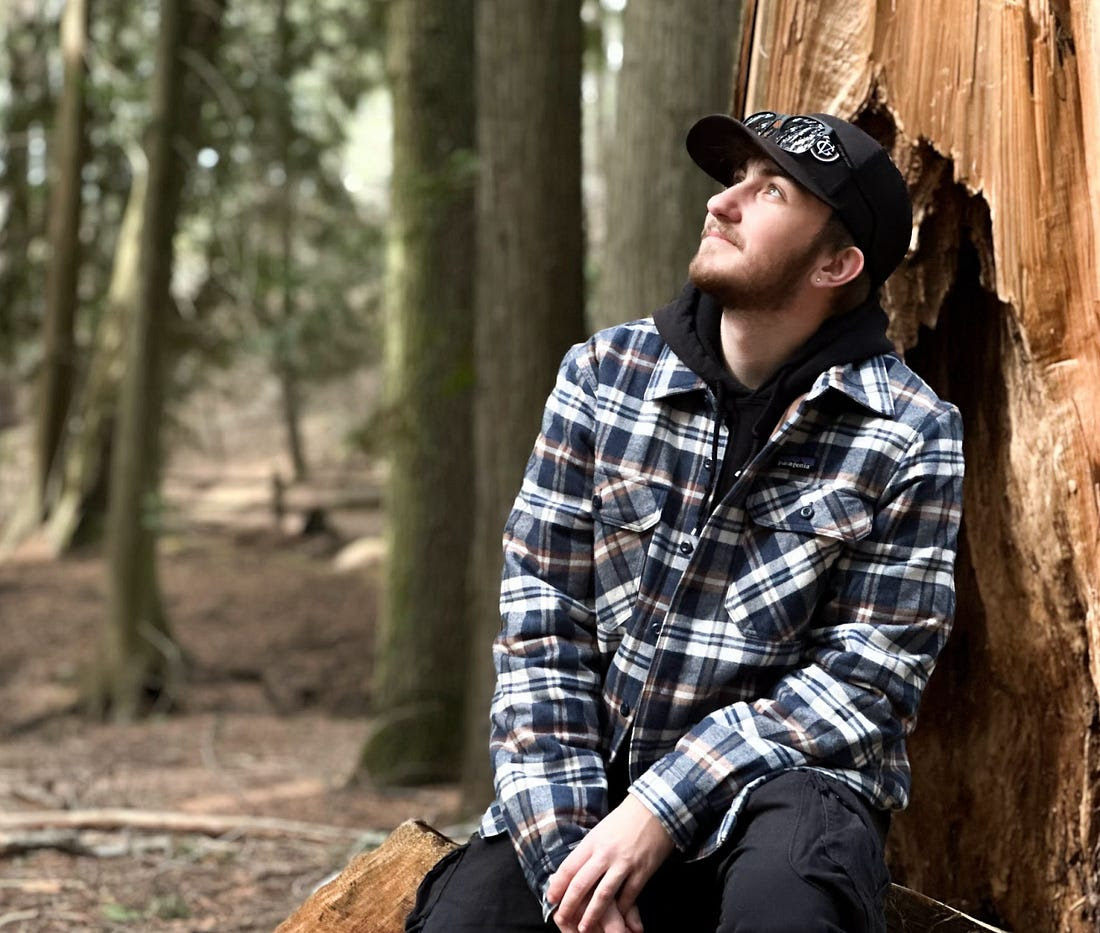
Dylan: Personally, now that I have had [testosterone] for almost five years, there would be no way that I would be able to lose everything that I have worked so hard for… And go back to living a life that was not me.
Spencer: Would you compare it to, like, if I were being forced to live as a woman every single day? Is it the exact same thing to you?
Dylan: Absolutely. I mean, if you were forced to be living [as] a woman and you, that was not something that you wanted? Absolutely.
Samuel: I couldn’t do it. I couldn’t do it. When I was younger, it almost killed me then. I couldn’t do it now. I think they’d have to kill me to force me to stop transitioning because it saved my life. I think living as myself, living as Sam, as a man, is so integral to who I am. For somebody to even try to force me to stop that would include stopping me entirely, if that makes sense.
Spencer: Okay, let’s talk about Donald Trump. Trump has tasked several federal agencies to police and ultimately stop gender-affirming care for minors, which he has equated to child abuse and child sexual mutilation. He’s also falsely stated that kids are going to school and coming back with sex changes. I wanna know, as a trans kid, what would you say if you could talk to President Trump right now?
Ray: It’s kind of painful to hear the same argument that he pulls out of his asshole every single time just because he wants to weaponize the fact that we’re a marginalized community and people are afraid of us because they don’t understand so his tactic to basically throw people off is to make us look like we’re indoctrinating kids. We’re coming back from school with surgeries. Which, by the way, you don’t just go to school and be like, “Ah, yes, I would like a surgery please.”
Spencer: Do you guys feel sometimes like you’re being used by adults as political pawns?
Ray: All the time!
Dylan: Yeah, I have been fighting this fight for so long that I’m not even necessarily surprised by what’s said anymore. I think that if I could say something directly to Trump, it wouldn’t be very nice. Because at this point I’m done being nice. At this point I’m just mad, because it has gotten to a point where they’re toying with people’s lives. They are toying with people’s lives making us look like monsters for their political gain. Because if they have people on their side that think that we are everything that they say they are, people are gonna believe ‘em.
Spencer: Especially when most Americans have never even met a trans person before.
Dylan: Absolutely.
Spencer: And trans people represent, as far as we know, less than one percent of the overall population.
Romana: I feel like a political pawn, because there’s so much talk about trans people and so much legislation passed around it and it just feels like we’re being used as a scapegoat and just someone to put the blame on and hate on in society. If I could say something to President Trump, I would proudly say something like, “Just leave us alone.”
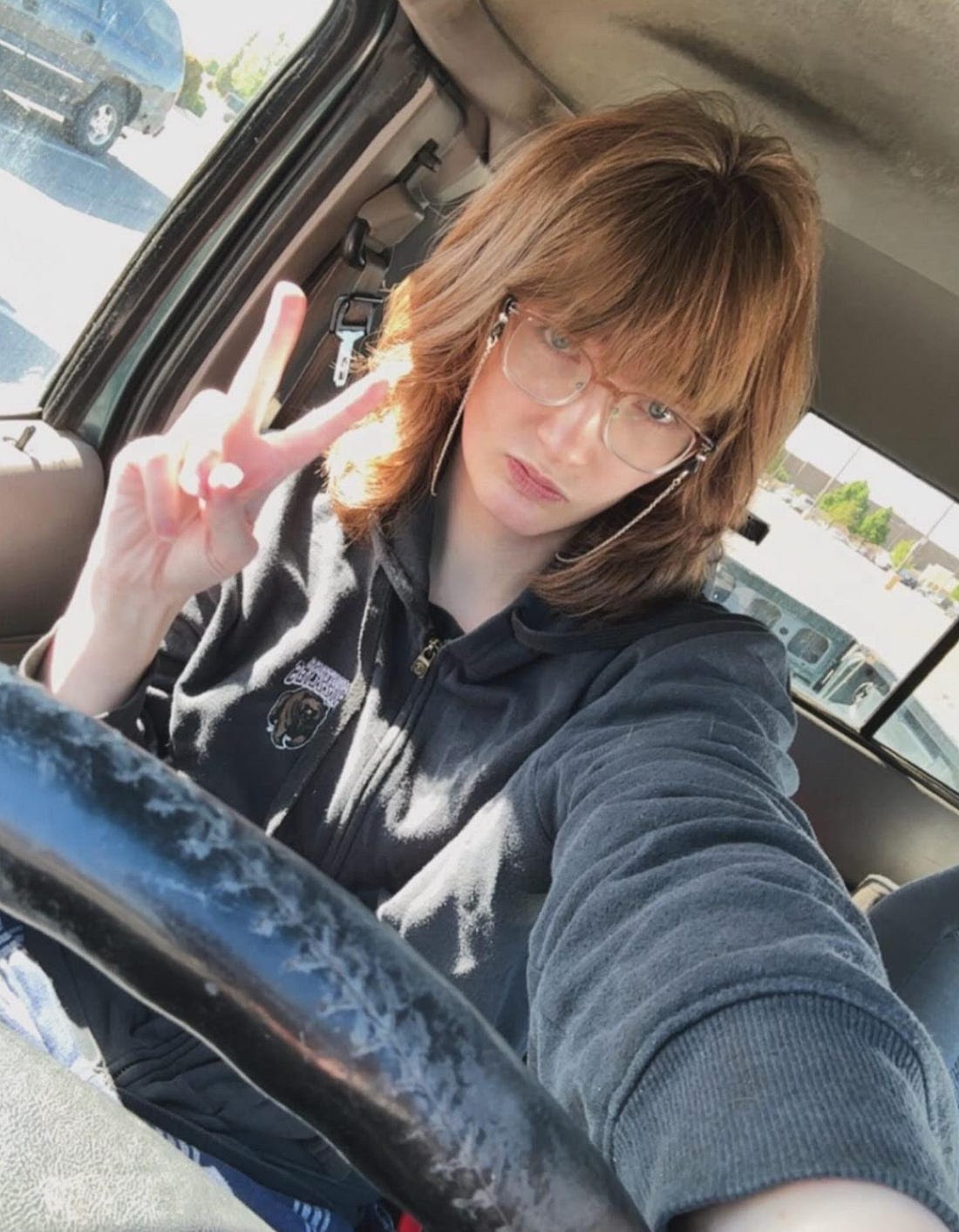
Spencer: It’s hard for me to square away why [Trump] would make trans issues the number one platform of [his] campaign when it’s such a small percentage of the population. It doesn’t really make sense mathematically.
Samuel: I think to your point, it’s exactly because it’s a small area of the population. For a lot of these politicians, the hate is real. But to some extent, it’s like we are the issue they can use right now because we’re such a small community that we’re targetable. It’s the small size of the transgender community and the lack of education that the general public has that is what drives being able to target this group.
Spencer: I think there’s a lot of misinformation in the United States about what gender-affirming health care actually is. So tell me what gender-affirming health care means to you and how did you make the decision to get on it?
Dylan: It took me a really long time to realize or to put words to how I was feeling. And once I did, I spoke with my primary doctor who referred me to the gender spectrum clinic in Little Rock. And I went, had my first appointment with them. And that was a six-month process where you meet with those doctors multiple times. You have to be in therapy. You have to get a psychiatric evaluation to make sure that you are doing this for the right reason. And when I tell people that they’re like, “Oh! I didn’t know that. I didn’t know that there was a process,” and I [would say], “Yeah, I’m not just walking in and saying, ‘Hey can I have it?’” And then with my top surgery too. I had to have been in therapy. I had to get letters of recommendation. I had to get it signed off, basically, by multiple people.
Gender-affirming care, to me, is hope. I graduated last year, and I never thought that I would make it to graduation, and the only reason that I did is because of my gender-affirming care. I’ve been on testosterone for almost five years, and even up until four years ago I was just so unhappy with the way that I looked, with the way I felt. I didn’t want to go out, I didn’t want to go do anything, and now I do.
Sam: I think I resonate with everything Dylan said, from the length of the process to the sort of life-saving benefits. I don’t think I would have made it to 18 without starting care at 14 when I did. I was just so uncomfortable, but the process is long. I think it was two years because my parents weren’t really sure about care at first.
Spencer: I think one of the critiques a lot of adults in this country have on gender-affirming care is that there are irreversible impacts, right? And for things like testosterone, like there are things like facial hair, for example, that you can’t fully go back on, right? Was that decision hard to make when you know that sometimes there will be elements of this that could be not completely reversible?
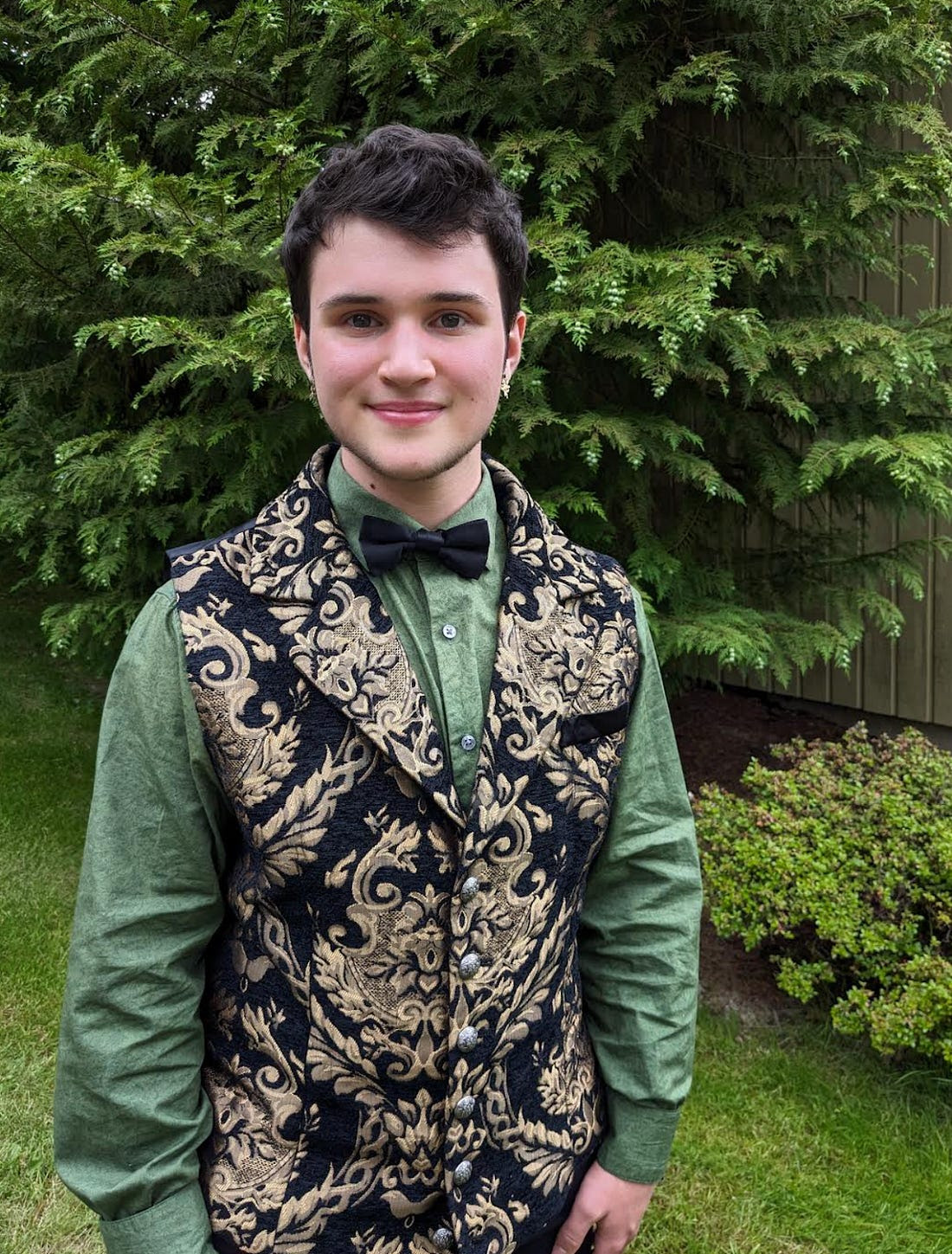
Sam: I can see why it would be a hard decision for a lot of people and I think in some ways that’s like why there’s so many safety checks and it’s also why maybe my parents were so. You know, like…
Spencer: Cautious?
Sam: Nervous, yeah. Especially because they were like, oh, you know my daughter now, you’re no longer my daughter and that was a huge adjustment. But for me, as long as I’ve been out, I’ve known that this is what I wanted to do. Like once I had the language to be able to say, “Yeah, I’m trans,” and knew that that was the path I wanted to go down. So in the end, after considering everything, it wasn’t really a hard decision.
Spencer: And Zavier, you are 11. A lot younger than everyone else on this panel, and it sounds like you are taking blockers, which to any Americans watching are completely reversible and have been given to cisgender girls for things like precocious puberty for decades. Zavier, what does gender-affirming care mean to you?
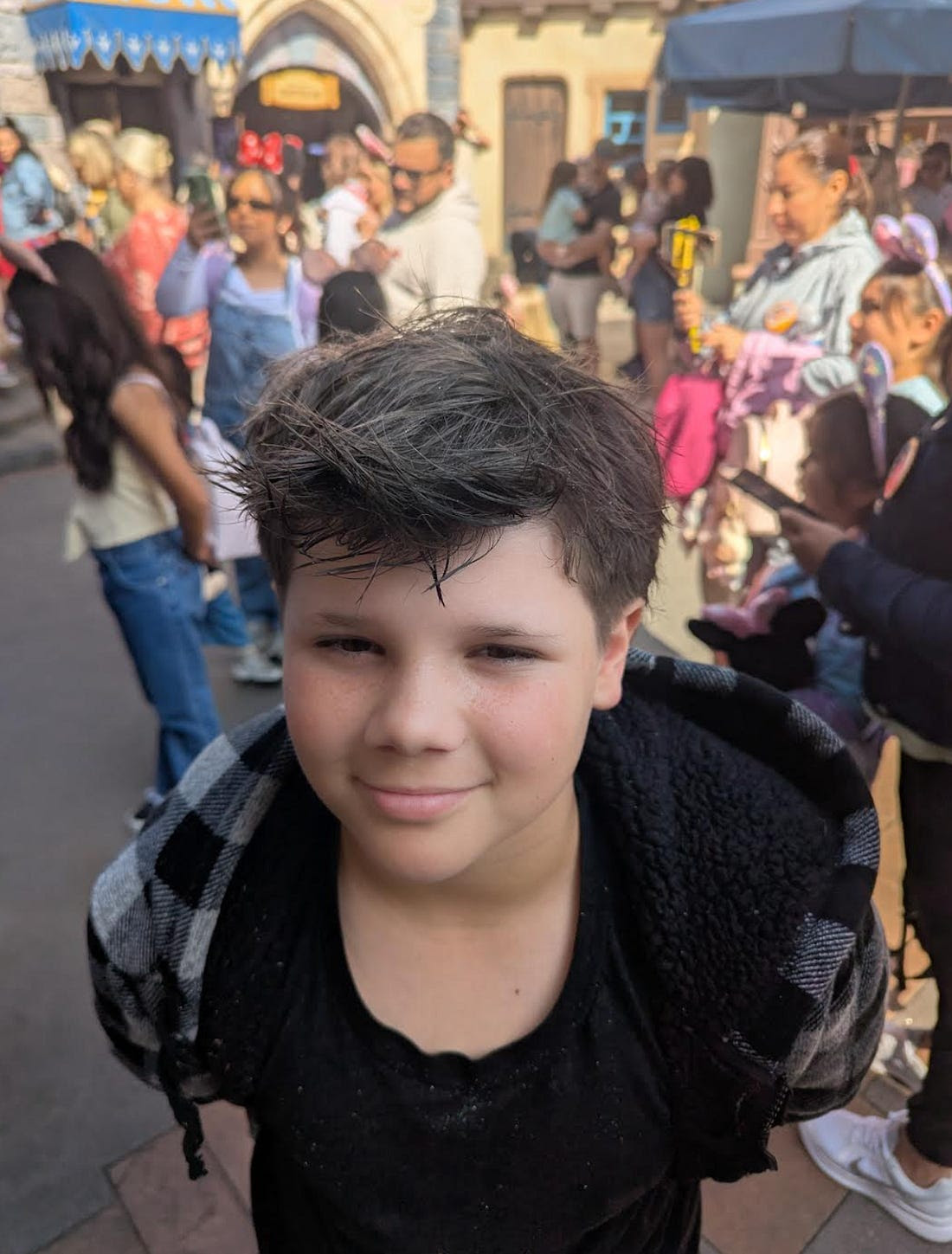
Zavier: Well, when I was 3 years old, I came out and I was wanting to be trans. Once I got older, my parents, they put me on blockers and let me take medicine for it.
Spencer: A lot of people, adults particularly, would say, how could a kid ever know at 3 that they’re trans? What would you say to that? How did you know?
Zavier: I just saw people. I just thought about wanting to be trans and I’ve wanted to be trans ever since.
Spencer: And you’ve always felt like a boy?
Zavier: Yeah.
Spencer: And Ray, how about you? When did you kind of know you were trans or start having feelings that you could be trans and what’s the process for you been like to get on gender-affirming care?
Ray: I’ve known since I was like 6, 7-ish. I’ve always wanted to be the dad, always wanted to be a king. I didn’t want to be a queen, none of that. It took about seven to eight months of doctors visits. First we had to make sure my mental health was good. So they prescribed me like Strattera and other types of medicines to help elevate my levels and stuff. And then they eventually put me on testosterone.
Spencer: And how has that been for you, the transformation? Has that felt good?
Ray Oh, I feel like myself now, finally! I feel like everybody in this call or this meeting feels like themself after they finally take their hormones.
Spencer: So for me, a cisgender gay boy growing up, I’d want to wear my mom’s clothes and kind of act like a girl and do different things that would tap into my femininity. But there’s never been a question that I could be a trans woman, right? What do you think is the difference between how you guys feel versus how I feel about wanting to explore my gender?
Dylan: So in my house, I’ve had both. You know, my brother is a 17-year-old gay man. And when he was little, he did. He put on my dresses and my mom’s high heels and boots and everything. And so we had that, and then we had me. From the time I could dress myself wanting strictly jeans and t-shirts, and nobody was allowed to touch my hair. And there is so much of a difference. My brother was exploring that, and I don’t want to say exploring that as in a hobby, and I was exploring it more as a lifestyle. That sounds wrong to me. But that’s the best way I can explain it.
Spencer: A big difference could be comparing it to some gay guys [who] like to dress up in drag on Halloween. You want Halloween to be every single day for the rest of your life.
Dylan: My entire life, yes, yes.
Spencer: Take me more into your mind about the feelings of wellness, of health, if you are able to live as your gender identity.
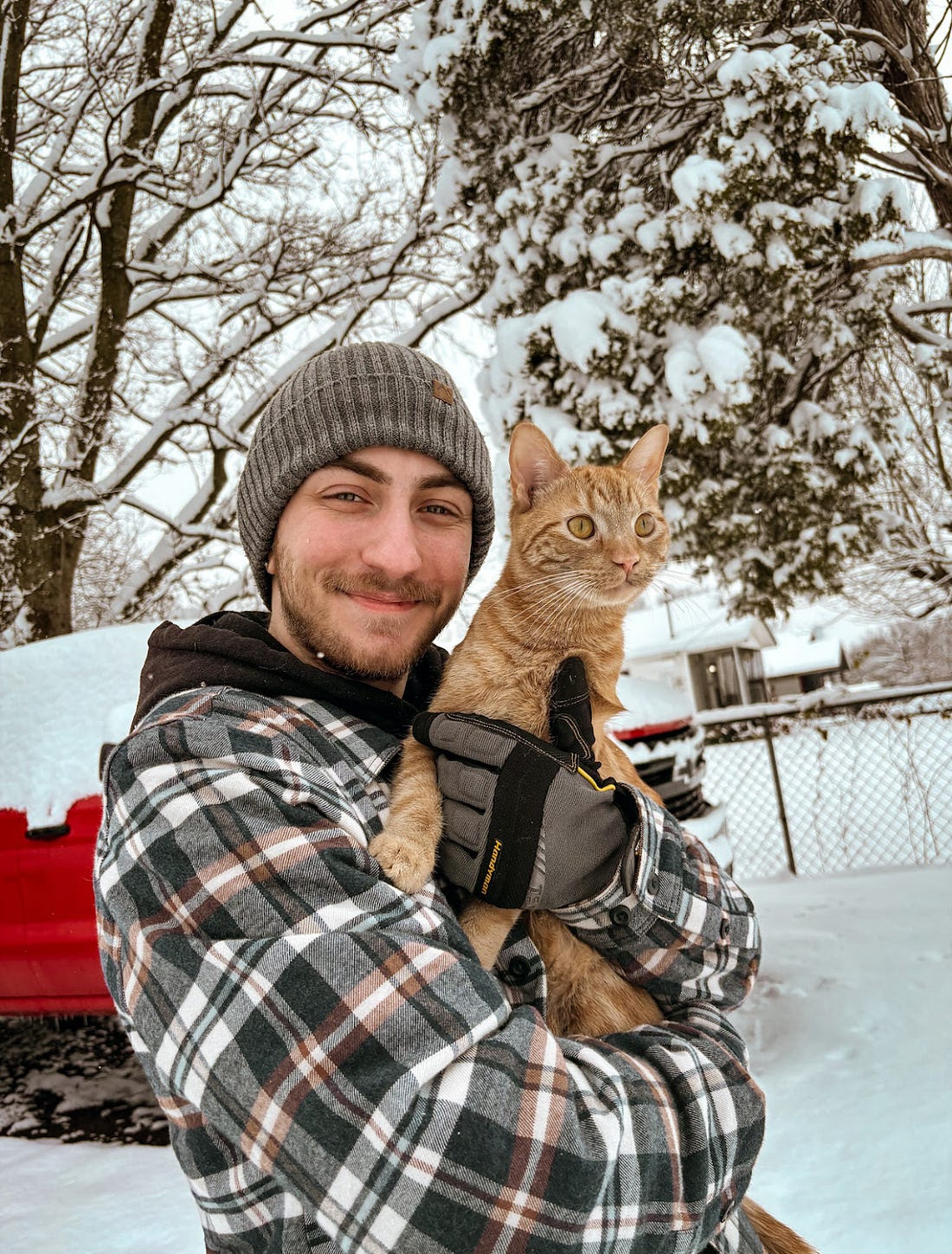
Dylan: The validation started the moment I cut my hair off. I mean, from that moment, I opened the door for somebody. It was, “Thank you, sir.” We went out to eat with my mom, me and my brother. “What do you boys want?” I mean it was right off the bat. And that’s honestly what made me realize that’s who I was supposed to be, because it made me feel so good. I mean, even to this day, somebody calling me sir or any form of male affirmation, anything, makes me feel so good. Just knowing that these random people in the deep south have no clue who they’re talking to. And if they did, their reaction would be way different. But the fact that these country hicks in the Deep South, who I know voted for Trump, are calling me sir or bub or anything? Makes me feel so good about myself knowing that they have no idea.
Spencer: And Zavier, how about you? You’re the youngest, why is it important for you to transition at such a young age?
Zavier: When I was growing up and people would call me a girl, I would just not feel like I was a girl. And when they said that I would just be like, “No,” inside my head.
Spencer: And do you play on the boys sports teams and do you use the boys bathroom?
Zavier: I do use the boys bathroom and my parents are signing me up for kickboxing.
Spencer: Love it, that’s super cool, yeah. And you feel great since you’ve transitioned. Is there ever any regret or feeling like, “I wanna go back to living as a girl?” No? And that would be the case for everyone here is my sense, right? No regret, no sense of de-transitioning, anything like that, yeah? Do you guys find that when you meet people and actually have conversations with them about who you are and why you need this care, hearts and minds are changed, does that help?
Sam: Yeah.
Spencer: You’re shaking your heads. Yeah, go ahead.
Dylan: [In my] School, everybody knew, I live in a small town. It wasn’t a secret. Even the 60 Minutes episode, I mean, you have no idea how many people watched that and came to me and said, “I am so sorry. I never thought about it the way that you put it. I didn’t understand until I watched that.” Like there were so many people in my school and work that [60 Minutes] truly changed the way that they thought about the transgender community. People have this pre-idea of what the transgender community is. And it’s just not, at all, how it actually is. And you don’t know that until you speak with somebody that is living it.

Spencer: And to your point on misinformation, I mean, if you turn on Fox News, which is the most watched cable news channel in this country right now, misinformation is rampant. There are comparisons that gender-affirming care is literally just bottom surgeries or so-called general mutilation. What do you think those media portrayals of trans kids and gender-affirming care for trans kids does to the mindset of Americans as they see you guys?
Dylan: They see that people are talking about giving 7-year-olds bottom surgery at school. Yeah, that could be scary to somebody that doesn’t understand. You see that, and your brain automatically goes to, “Oh, that’s not right. They can’t do that. That’s not right.”
Spencer: But that’s not happening.
Dylan: That’s not happening, absolutely. But, you see that as somebody that doesn’t know for sure that that’s not happening. And I mean, yeah, I don’t blame them for being like, “Oh, we have to stop this.” But it’s that misinformation of people saying, “Oh this is happening” when it’s not. So they’re scaring people for no reason.
Romana: I definitely agree that they make it sound really scary. And I’ve met people who’ve thought that way. I think the news really paints trans children especially as victims of being trans, which isn’t true. Or like, you’re being groomed into it, which doesn’t happen.
Spencer: Zavier, as an 11-year-old, have you even had conversations about surgeries or anything like that?
Zavier: The answer is no, because I’m only 11 years old, and I started the blockers about a year ago. So, since I’m 11 years old and you usually get surgeries at like 17 or 18, maybe. Nobody’s talked about it to me. Because if I change my mind, which I probably won’t, it’s in like six, seven years.
Spencer: Right, and you started on blockers because it gives you more time to delay puberty so you can still give yourself time to make up your mind. Right? And that’s something that I’m assuming you’re exploring with your family and your doctor to decide what’s best for you, is that right?
Zavier: Yeah.
Spencer: Ray, is it okay if I speak about the experience we had in South Carolina?
Ray: Yeah.
Spencer: Okay, well, we came to film an episode on conservative-minded dads. May your dad rest in peace, I know he passed away, and I’m so sorry about that. When we were filming with your dad, who was a military veteran, who was kind of a redneck—can I say that? From Georgia. I remember him saying to me, “This is completely against Republican ideology, get the government the hell out of my child’s doctor’s office.” Do you guys have anything to say about why it’s all Republicans coming after trans health care when it really is completely opposite to how conservatives see government intervention in family health care and parents’ rights?
Ray: Republicans are really bad at realizing that everything is not their business. We have HIPAA for a reason. They don’t seem to grasp the concept that they don’t to be in everybody’s lives. They feel like they have to protect these children, even though they’re not really protecting them.

Spencer: Is it fair to say that like gender-affirming care can be complicated and it can be nuanced and we need to have conversations about nuance by this but it’s tough to have those when you have people just attacking, attacking, attacking?
Samuel: Yeah, exactly. I mean, it’s medicine and all medicine is complex. Doctors and patients and their families are more qualified than politicians.
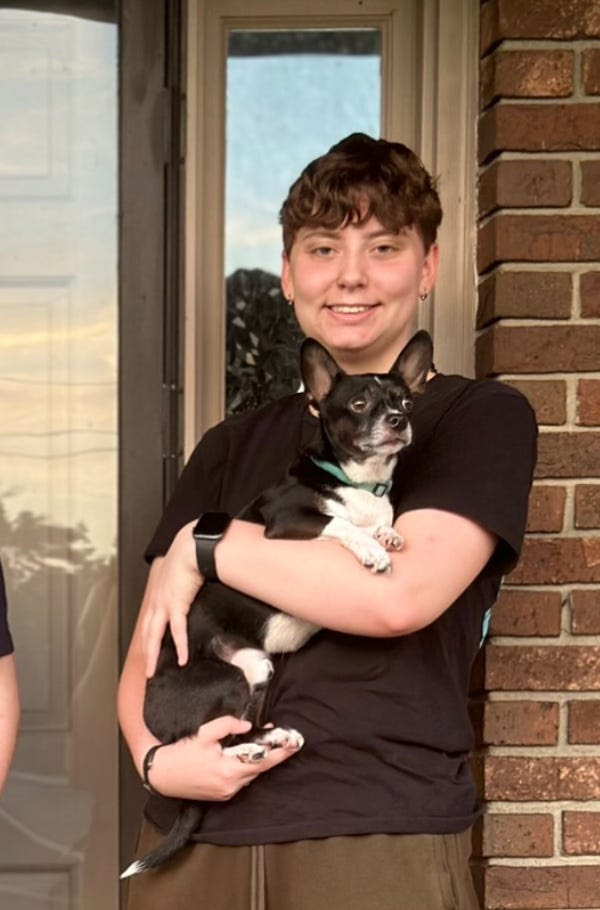
Ray: Politicians, they don’t have like a degree in anything to be able to say, “Oh, this is bad.” Like they’ve never done the research. They do not have a qualification. Until I see them have an MD, they don’t have any qualifications to say anything. And I do believe research should be done. I mean, everything has so many different symptoms for every different person. I believe research is very important.